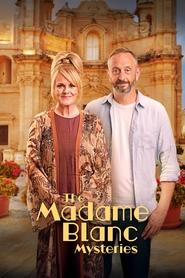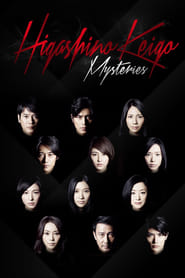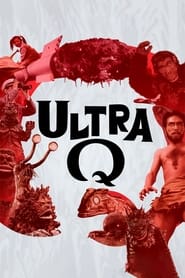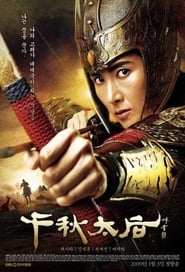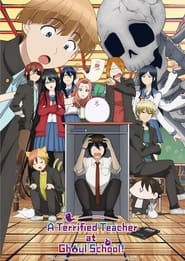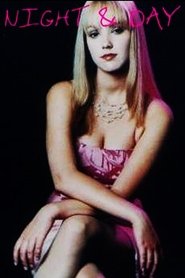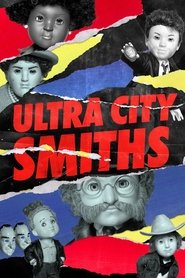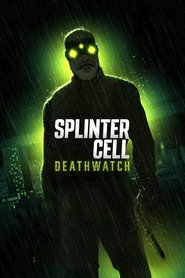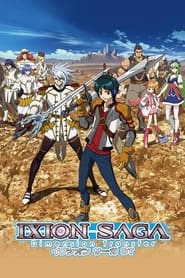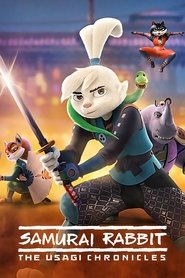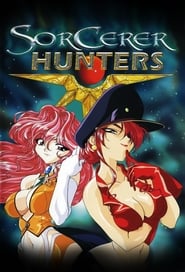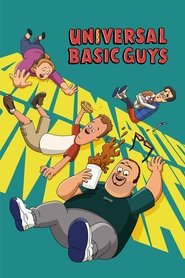Popular Musical TV Series - Page 419
-
The Madame Blanc Mysteries
2021
star 6.9Jean White is an antiques dealer who runs a successful business with her husband, Rory. But when he suddenly dies and leaves her nearly penniless, Jean relocates to their one remaining asset - a cottage in French antiques hub Saint Victoire - and begins investigating Rory's mysterious death. -
Keigo Higashino Mysteries
2012
star 6.811 mysteries, 11 actors. Japan's favorite mystery author, the world of Higashino Keigo comes to life on screen through an assortment of short stories. -
Ultra Q
1966
Ultra Q
1966
star 8.1As supernatural events and monster attacks rock Japan, the military and government look to be overwhelmed. Three intrepid young investigators—two pilots and a reporter—take it upon themselves to study these unexplained phenomena in order to inform and protect the public. With allies and science aiding them on their journey, the trio must separate myth from history as they explore the greater mysteries of these occurrences: are they unrelated, or is this barrage somehow a portent of even worse things to come? -
The Iron Empress
2009
The Iron Empress
2009
star 4.8Empress Cheonchu is a 2009 South Korean period television series based on the titular character, an actual historical figure and her lifelong struggle to protect the country her ancestors built. The granddaughter of Goryeo Dynasty founder Taejo Wanggeon, the empress ruled as the regent for her son Mokjong, the dynasty's seventh ruler. Determined to realize her ambitious goals for the kingdom of Goryeo, she dons armor, battles against foreign invaders, and tramples her lover, her son and brother in her rise to power. -
Azur Lane
2019
Azur Lane
2019
star 7.5When the "Sirens," an alien force with an arsenal far surpassing the limits of current technology, suddenly appeared, a divided humanity stood in complete solidarity for the first time. Four countries formed Azur Lane, paving the way for the improvement of modern warfare, which led to an initial victory. However, this tenuous union was threatened by opposing ideals, dividing the alliance into two and humanity became fragmented once again. As a seasoned and experienced fighter, the "Grey Ghost" Enterprise shoulders Azur Lane's hope for ending the war. But behind her stoic persona hides a frail girl, afraid of the ocean. Even so, she continues to fight as she believes that it's the only purpose for her existence. Amidst the neverending conflict within humankind, the keys that could unite a fragmented race might exist: a soldier coming to terms with her mysterious personality and camaraderie between those with different ideals. -
A Terrified Teacher at Ghoul School!
2024
star 7.5Haruaki Abe is happy to finally fulfill his dream of becoming a teacher. That happiness is short-lived after he arrives at Hyakki Academy and finds out the school is full of monsters! Can Abe overcome his cowardice and get his supernatural students under control? Join the timid teacher and his bizarre class for a tale of ghoulish mischief and paranormal education. -
Darker
2014
Darker
2014
star 8.7A series of serial killings is exposed and creates a stir among the public. A killer called "Darker" has been leaving a death notification card after killing scumbags who evaded the law. To counter the provocation of the mysterious killer, the police creates a special investigation team. -
Night and Day
2001
Night and Day
2001
star 7Night and Day is a British soap opera which was produced by Granada Television for LWT and ran on ITV from 2001 to 2003. Its theme-song, "Always & Forever", was sung by Kylie Minogue. -
Who Killed Sara?
2021
Who Killed Sara?
2021
star 7.6Hell-bent on exacting revenge and proving he was framed for his sister's murder, Álex sets out to unearth much more than the crime's real culprit. -
Gangnam B-Side
2024
Gangnam B-Side
2024
star 7.4When Jaehee, a top call girl at a club in Gangnam, goes missing, Detective Kang Dongwoo returns to crack the case. Prosecutor Min Seojin aims to rise in rank, while the notorious pimp, Yoon Gilho becomes a prime suspect. They unravel a web of secrets and connections behind the case. -
Ultra City Smiths
2021
Ultra City Smiths
2021
star 6.2Two detectives must contend with dangerous corruption as they investigate the mysterious disappearance of the last honest politician in their dark city. A group of unlikely suspects emerges - each with the last name of Smith. -
Shaurya Aur Anokhi Ki Kahani
2020
star 4.8Shaurya, a male chauvinist who believes that every girl's future belongs in the kitchen, is in for a surprise when he crosses paths with Anokhi, a hardworking girl. -
The Gong Show
2017
The Gong Show
2017
star 5.6Unique performers demonstrate their artistry in front of Hollywood judges in this update of the kitschy '70s talent show, which features the worst performances being cut short by bangs on the titular gong. -
Splinter Cell: Deathwatch
2025
star 6.4In the shadowy world of espionage, Sam Fisher is a rumor and a legend. Pulled back into action, he must help a new recruit unravel a global conspiracy. -
Live from Lincoln Center
1976
star 8.6Since premiering in 1976, the landmark series has sought to democratize the world of the performing arts by making Lincoln Center's historic concerts and events available for public broadcast across the country. And it continues to push the boundaries, both technical and creative, of what is possible in the realm of stage performance capture. -
General Electric True
1962
Anthology series based on stories from "True" magazine, hosted by Jack Webb. -
Ixion Saga: Dimension Transfer
2012
star 5.6Hokaze Kon is an otherwise normal boy who, one day, receives an inter-dimensional summons to the world of Mirror. He appears just in time to save the life of Princess Ecarlate, whose enemies are trying to prevent her political marriage. Kon, who knows nothing about Mirror nor the way home, attaches himself to Ecarlate's entourage. -
Samurai Rabbit: The Usagi Chronicles
2022
star 6.2A teenage rabbit aspiring to become a real samurai teams up with new warrior friends to protect their city from Yokai monsters, ninjas and evil aliens. -
Sorcerer Hunters
1995
Sorcerer Hunters
1995
star 5.1In the continent of spooner, sorcerers, who are the continent's aristocrats, have begun to abuse their powers. Under the guidance of Big Momma (their boss) Carrot (who turns into a giant monster every time he's placed under a magic spell), Gateau (a bodybuilder), Marron (a mage), Chocolate and Tira (who can transform into dominatrix's at will) must stop the evil sorcerers from picking on the weak. However, none of them (except maybe Marron) have a clue to what’s going on. -
Universal Basic Guys
2024
Universal Basic Guys
2024
star 5Two brothers lose their jobs to automation and are given $3,000 a month in a new basic income program, allowing them to use their free time and free money to find purpose in a world where they're no longer needed.
 Netflix
Netflix
 Amazon Prime Video
Amazon Prime Video
 Apple iTunes
Apple iTunes
 Apple TV Plus
Apple TV Plus
 Disney Plus
Disney Plus
 Google Play Movies
Google Play Movies
 Paramount Plus
Paramount Plus
 Hulu
Hulu
 HBO Max
HBO Max
 YouTube
YouTube
 fuboTV
fuboTV
 Peacock
Peacock
 Peacock Premium
Peacock Premium
 Amazon Video
Amazon Video
 The Roku Channel
The Roku Channel
 AMC+
AMC+
 Kocowa
Kocowa
 Hoopla
Hoopla
 The CW
The CW
 Vudu
Vudu
 Starz
Starz
 Showtime
Showtime
 PBS
PBS
 Pantaflix
Pantaflix
 FXNow
FXNow
 Tubi TV
Tubi TV
 Kanopy
Kanopy
 Comedy Central
Comedy Central
 Crunchyroll
Crunchyroll
 Microsoft Store
Microsoft Store
 Redbox
Redbox
 Sun Nxt
Sun Nxt
 ABC
ABC
 DIRECTV
DIRECTV
 Crackle
Crackle
 Fandor
Fandor
 Plex
Plex
